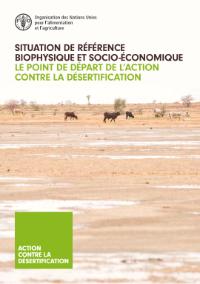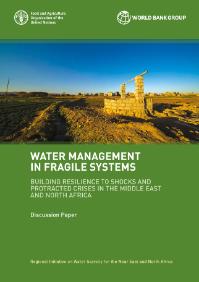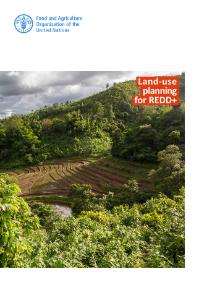Focal point
Location
The Food and Agriculture Organization of the United Nations leads international efforts to defeat hunger. Serving both developed and developing countries, FAO acts as a neutral forum where all nations meet as equals to negotiate agreements and debate policy. FAO is also a source of knowledge and information. We help developing countries and countries in transition modernize and improve agriculture, forestry and fisheries practices and ensure good nutrition for all. Since our founding in 1945, we have focused special attention on developing rural areas, home to 70 percent of the world's poor and hungry people.
Members:
Resources
Displaying 311 - 315 of 5074The role of local communities, smallholders, and indigenous peoples in REDD+ implementation
Local communities, smallholders and indigenous peoples play an essential role in the sustainable management of land and forests and, as such, in mitigating and adapting to climate change. They are the guardians of approximately one-third of the world’s forests and have customary rights over a large proportion of forest lands to be managed, conserved and/or restored.
Situation de référence biophysique et socio-économique - Le point de départ de l'Action contre la désertification
Le projet Action contre la désertification (ACD) appuie huit pays (le Burkina Faso, l’Éthiopie, Fidji, la Gambie, Haïti, le Niger, le Nigéria et le Sénégal) du Groupe des États d’Afrique, des Caraïbes et du Pacifique (ACP) dans la gestion durable et la restauration de leurs terres dégradées.
Water Management in Fragile Systems
Fragility has become the reality in several countries of the Middle East and North Africa. Armed conflict and forced displacement are taking an enormous toll on human lives, with the region accounting for about 60 percent of the estimated global total of battle-related casualties since the turn of the millennium. Conflicts and fragility have also had negative economic impacts, with countries directly affected by conflict such as Syria and Yemen losing as much as half of their pre-war GDP.
Iniciativa de Comunicacion para el Desarrollo en apoyo al reconocimiento y la gobernanza de tierras comunales en Guatemala
La FAO ha desarrollado una iniciativa de Comunicación para el Desarrollo (CpD) orientada a informar y documentar experiencias relevantes en tema de
gobernanza y reconocimiento de tierras comunales en Guatemala, con fines de acceso y uso sustentable de los recursos naturales.Land-use planning for REDD+
Land-use planning is increasingly being recognized as a central part of the formulation and implementation of strategies to reduce deforestation and forest degradation, contributing to both climate change mitigation and adaptation. Conflicting interests and competition over land and resources have been major driving forces of forest conversion, with increasing pressure due to population growth, degradation of lands, economic interests and, not least, the impact of climate change.











